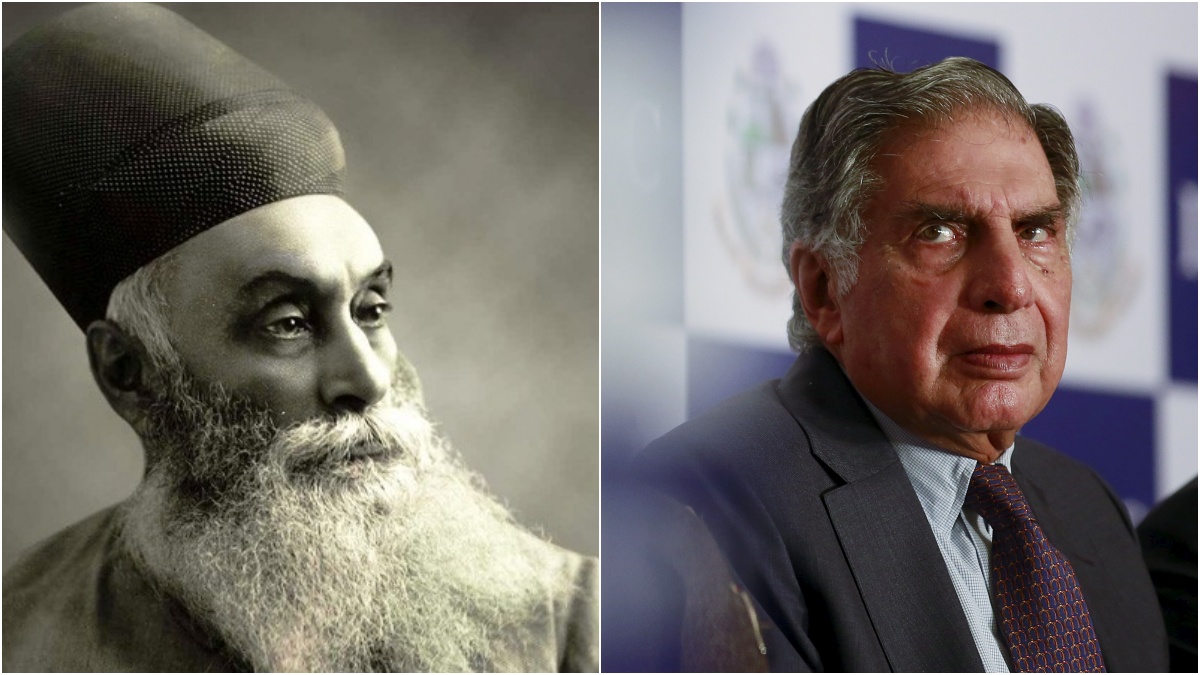The Tata Group, India’s largest business conglomerate, has built a global reputation for excellence over more than 150 years. What began as a trading company in 1868 has grown into a giant with over 100 companies, 26 of which are publicly listed, operating in more than 150 countries. The Tata family, at the core of this remarkable success, has produced some of India’s most influential business leaders. Here’s a closer look at the prominent figures in the Tata family tree.
Jamsetji Tata: The Visionary Founder
Jamsetji Tata, born in 1839, is regarded as the father of Indian industry. He was one of five children born to Nusserwanji Tata, who took the first steps toward establishing the family’s presence in business. Jamsetji’s remarkable foresight led him to lay the foundation for Tata Steel and the Taj Mahal Palace Hotel. These ventures would later become key pillars of the Tata empire. Jamsetji’s legacy continues to inspire not just his family but Indian industry at large.
Dorabji Tata: Expanding the Empire
After Jamsetji’s passing in 1904, his eldest son, Dorabji Tata, took over the reins of the family business. Born in 1859, Dorabji was instrumental in launching Tata Power, another key division of the company. His efforts to expand his father’s dream established the Tata Group as a multi-industry leader in India. Dorabji’s commitment to Jamsetji’s vision ensured that the Tata Group continued to grow even after the founder’s death.
Ratanji Tata: The Expansionist
Ratanji Tata, born in 1871, was Jamsetji’s younger son. While Dorabji was focusing on power and steel, Ratanji expanded the family’s business interests into the cotton and textile industries, providing the Tata Group with a solid foundation in diverse sectors. His vision for growth further diversified the Tata portfolio.
JRD Tata: Aviation Pioneer
The legendary Jahangir Ratanji Dadabhoy (JRD) Tata, born in 1904, was the son of Ratanji Tata and Suzanne Brier. JRD led the Tata Group for more than five decades and took the conglomerate to new heights. He founded Tata Airlines, which later became Air India. Under his leadership, Tata Group entered new industries, including chemicals, tea, and software, and became synonymous with quality and innovation. JRD’s visionary leadership shaped the Tata Group’s journey from an Indian company to a global brand.
Naval Tata: Stepping Into Global Markets
Naval Tata, born in 1904 and adopted by Ratanji Tata, was another towering figure in the family. He played a pivotal role in modernizing the business and setting the stage for international expansion. His adopted son, Ratan Naval Tata, would eventually carry the family name forward, making globally significant acquisitions such as Jaguar Land Rover (JLR), Tetley Tea, and Corus Steel. Naval Tata’s leadership was crucial in transforming Tata into a global brand.
Ratan Tata: Taking the Brand Global
Born in 1937, Ratan Tata became one of the most well-known and respected industrialists in Indian history. He led the Tata Group from 1991 to 2012 and was responsible for the acquisition of major international brands, such as JLR, Corus, and Tetley. His leadership also saw the development of Tata Nano, the world’s cheapest car. Even after his formal retirement, Ratan Tata continued to serve as the face of Tata’s values and ethics. His recent passing in October 2024 marked the end of an era for Indian business.
Noel Tata: A Steady Hand
With Ratan Tata’s passing, attention has turned to his stepbrother Noel Tata as a potential successor. Noel Tata, who has played a key role in the retail division Trent, as well as Tata International, is a capable leader and businessman. He is known for his strategic thinking and is well-placed to continue the Tata legacy. Noel Tata’s three children—Maya Tata, Neville Tata, and Lia Tata—are also expected to play significant roles in the future of the Tata Group, ensuring the family’s continued involvement in the business.
The Tata family has built a legacy of leadership, vision, and growth over the past century and a half. From the foundations laid by Jamsetji Tata to the global expansions under Ratan Tata, each generation has contributed significantly to India’s industrial development. As the next generation steps forward, the Tata name remains synonymous with innovation, integrity, and progress in the business world.


